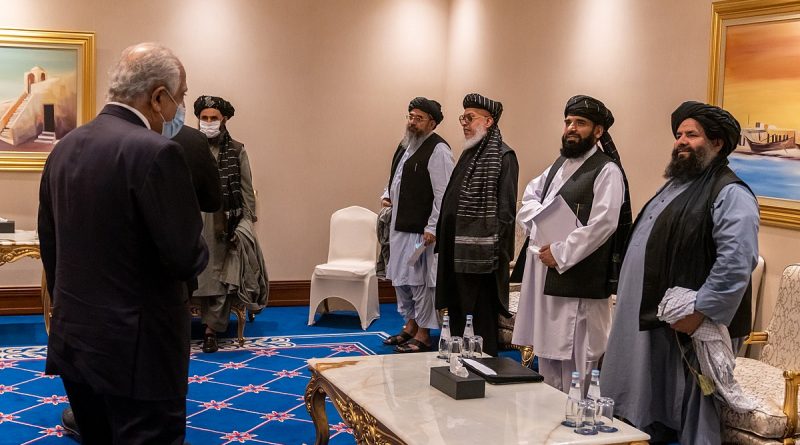Taliban Declares Total Ban on Poppy Cultivation
Charleigh Stone
Staff Writer
The cultivation of poppy is now strictly prohibited in Afghanistan, per a recent decree from the Taliban. The move comes amid the Taliban’s bid for formal international recognition, in which cessation of the Afghan drug trade has been a major impediment to the international community.
The new ban also prohibits the use, sale, transfer, purchase, import, and export of wine, heroin, and other narcotics. It was announced by the Prime Minister’s Administrative Deputy, Mawlawi Adbul Salam Hanafi, in an official decree to local and international media, reports The New York Times. The group’s decision to ban poppy cultivation is not unprecedented, but rather reminiscent of their previous rule in the late 1990s, when a countrywide ban largely helped eradicate poppy production. The ouster of the Taliban in 2001 saw a reversal of progress in the eradication of the drug trade, causing the harvesting and extracting of opium from poppies to become the main source of income for millions of small farmers and day laborers, according to ABC News.
While the ban will help to eradicate the illegal drug trade, it is also likely to exacerbate Afghanistan’s ongoing humanitarian crisis. According to The Associated Press, the UN last month asked for $4.4 billion in aid to support the 95 percent of Afghans that do not have enough to eat. However, the Taliban’s earlier poppy ban caused a 75 percent reduction in the global heroin supply in 1999, reports Brookings. As it’s difficult to know how the Taliban will create substitute crops or provide financing for famers, those whose livelihoods depend on opium production are likely to face further devastation by the ban.
Today, Afghanistan remains the world’s largest opium manufacturer, producing more than 6000 tons last year, creating a potential yield of 320 tons of pure heroin. Nearly 80 percent of the supply reaches Europe through drug corridors in Central Asia and Pakistan, ABC News continues. Income from opiates in Afghanistan accounted for more than nine percent of the country’s GDP, with exports and domestic consumption grossing between $1.8 billion and $2.7 billion, says the United Nations. The lucrative nature of opium harvesting has previously subjected the Taliban to internal backlash over attempts to curb production. According to Reuters, Taliban sources are anticipating tough resistance from elements within the group.
The decision to ban poppy production has been largely attributed to Kabul’s continued international isolation and sanctions, which have been imposed by the international community since the Taliban takeover of Afghanistan and United States’ military withdrawal. Initial arguments that the U.S. should ease sanctions and unfreeze the Afghan Central Bank’s foreign reserves to address the growing humanitarian impact, despite potential benefits for the Taliban’s “terrorist” regime, have been stalled amid Russia’s war in Ukraine, reports the Global Initiative Against Transnational Organized Crime. The conflict has diminished the resources and political capital that governments in the West were willing to expend on Afghanistan. The Taliban also sparked outrage amongst the international community after reneging on earlier promises, such as those to observe the rights of women and girls. This move suggests efforts to divert attention to what, in the Taliban’s view, should be a more practical concern, says Global Initiative.
The cessation of the illicit drug trade has often topped foreign policy priorities toward Afghanistan, in part to deprive the Taliban and affiliated insurgent groups of a major source of financial support. Previously, the Taliban had little choice but to work with local distributors and regional smugglers to take advantage of the profitable drug markets across Europe and Canada, necessary to fund their war effort against the Western-installed government in Kabul. According to Foreign Policy, the U.S. allocated upwards of $8 billion over 15 years in attempts to curb the trade, devising airstrikes and lab raids to eradicate poppy agriculture in Afghanistan.
Following the ban, Afghanistan’s acting Deputy Prime Minister, Abdul Salam Hanafi, urged the international community to cooperate with the country on counter-narcotic initiatives, such as drug rehabilitation and crop diversification, reports Al Jazeera. Despite continued attempts to reduce the transnational threat of narcotics from Afghanistan, however, attention to counter-narcotics strategies has been trending downwards over the past decade. According to the Royal United Services Institute, countries such as the United Kingdom have started to divest themselves of wide-ranging counter-narcotic responsibilities in response to a comprehensive history of failing to reduce production levels and market flows.


